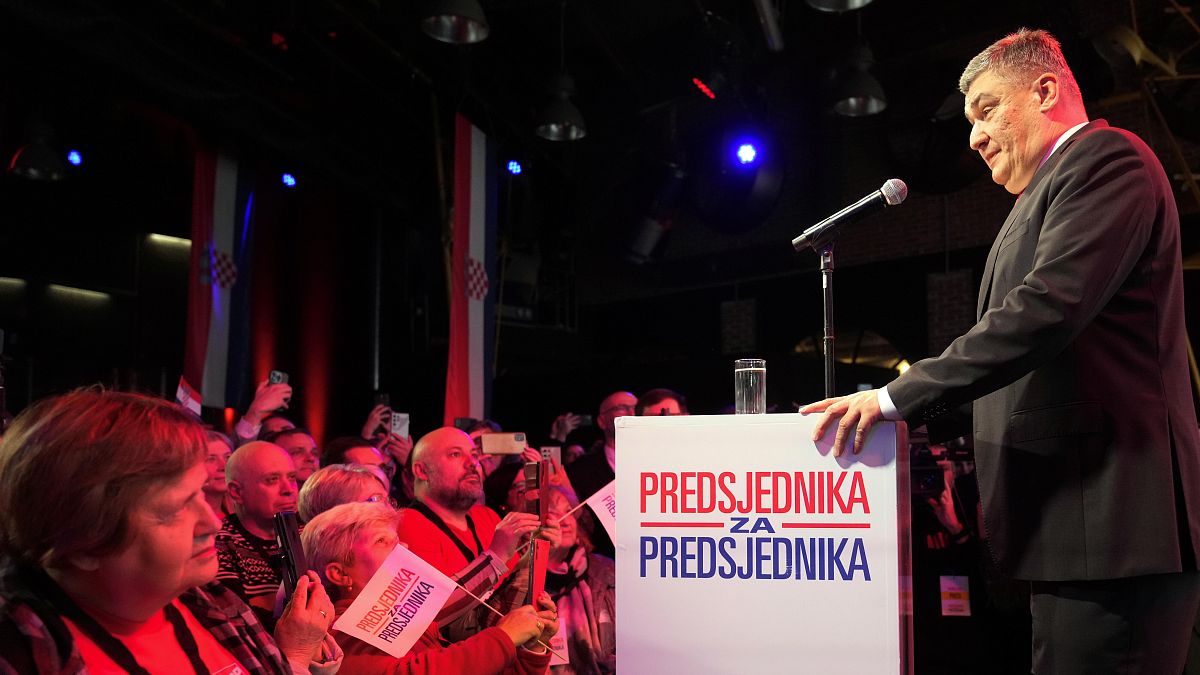With nearly all of the votes counted, left-leaning Milanović won 49% while his main challenger Dragan Primorac, a candidate of the ruling conservative HDZ party, trailed far behind with 19%.
Croatia’s incumbent President Zoran Milanović has won the most votes in the first round presidential election on Sunday, but fell short of an outright win so must face a runoff against a ruling party candidate to secure another five-year term.
With nearly all of the votes counted, left-leaning Milanović won 49% while his main challenger Dragan Primorac, a candidate of the ruling conservative HDZ party, trailed far behind with 19%.
Pre-election polls had predicted that the two would face off in the second round on 12 January as none of the eight presidential election contenders were projected to get more than 50% of the vote.
Milanović thanked his supporters but warned “this was just a first run.”
“Let’s not be triumphant, let’s be realistic, firmly on the ground,” he said. “We must fight all over again. It’s not over till it’s over.”
Left-leaning Milanović is an outspoken critic of Western military support for Ukraine in its war against Russia. He is often compared to Donald Trump for his combative style of communication with political opponents.
The most popular politician in Croatia, 58-year-old Milanović has served as prime minister in the past. Populist in style, he has been a fierce critic of current Prime Minister Andrej Plenković and continuous sparring between the two has lately marked Croatia’s political scene.
Plenković has sought to portray the vote as one about Croatia’s future in the EU and NATO. He has labelled Milanović “pro-Russian” and a threat to Croatia’s international standing.
“The difference between him and Milanović is quite simple: Milanović is leading us East, Primorac is leading us West,” he said.
Though the presidency is largely ceremonial in Croatia, an elected president holds political authority and acts as the supreme military commander.
Milanović has criticised NATO and EU support for Ukraine and has often insisted that Croatia should not take sides, saying the country should stay away from global disputes, despite being a member of both alliances.
Milanović has also blocked Croatia’s participation in a NATO-led training mission for Ukraine, declaring that “no Croatian soldier will take part in somebody else’s war.”
His main rival in the election, Primorac, has stated that “Croatia’s place is in the West, not the East.”
His presidency bid, however, has been marred by a high-level corruption case that landed Croatia’s health minister in jail last month and featured prominently in pre-election debates.
During the election campaign, Primorac sought to portray himself as a unifier and Milanović as divisive.
“Today is an extremely important day,” Primorac said after casting his ballot. “Croatia is going forward into the future. Croatia needs unity, Croatia needs its global positioning, and above all Croatia needs peaceful life.”
Trailing a distant third in the pre-election polls is Marija Selak Raspudić, a conservative independent candidate. She focused her election campaign on the economic troubles of ordinary citizens, corruption and issues such as population decline in the country of some 3.8 million.
Sunday’s presidential election is Croatia’s third vote this year, following a parliamentary election in April and the European Parliament balloting in June.
Read the full article here


